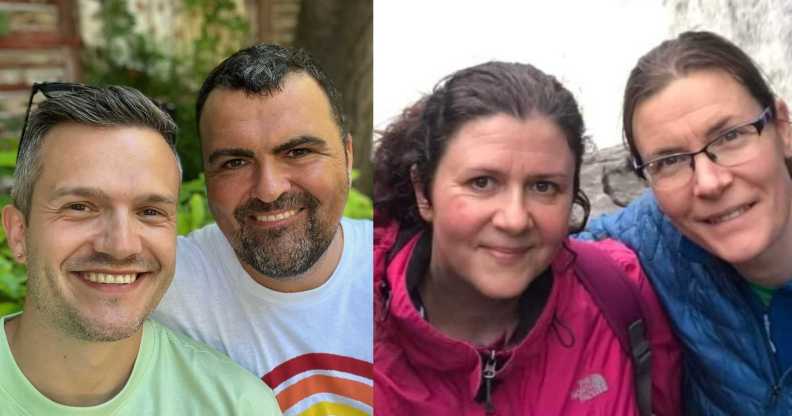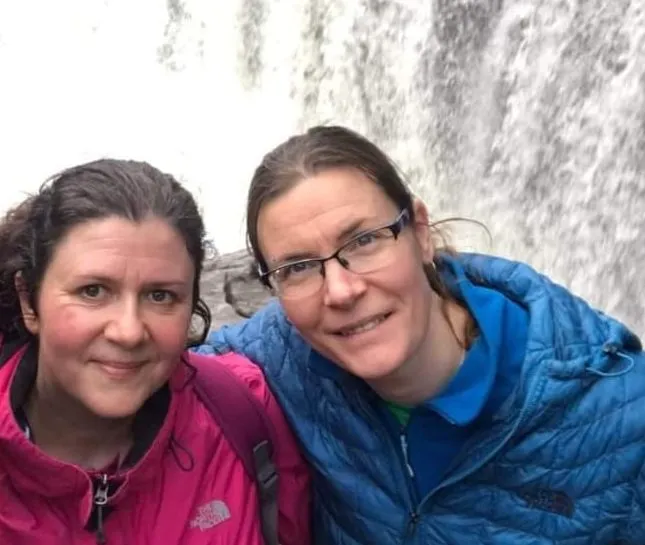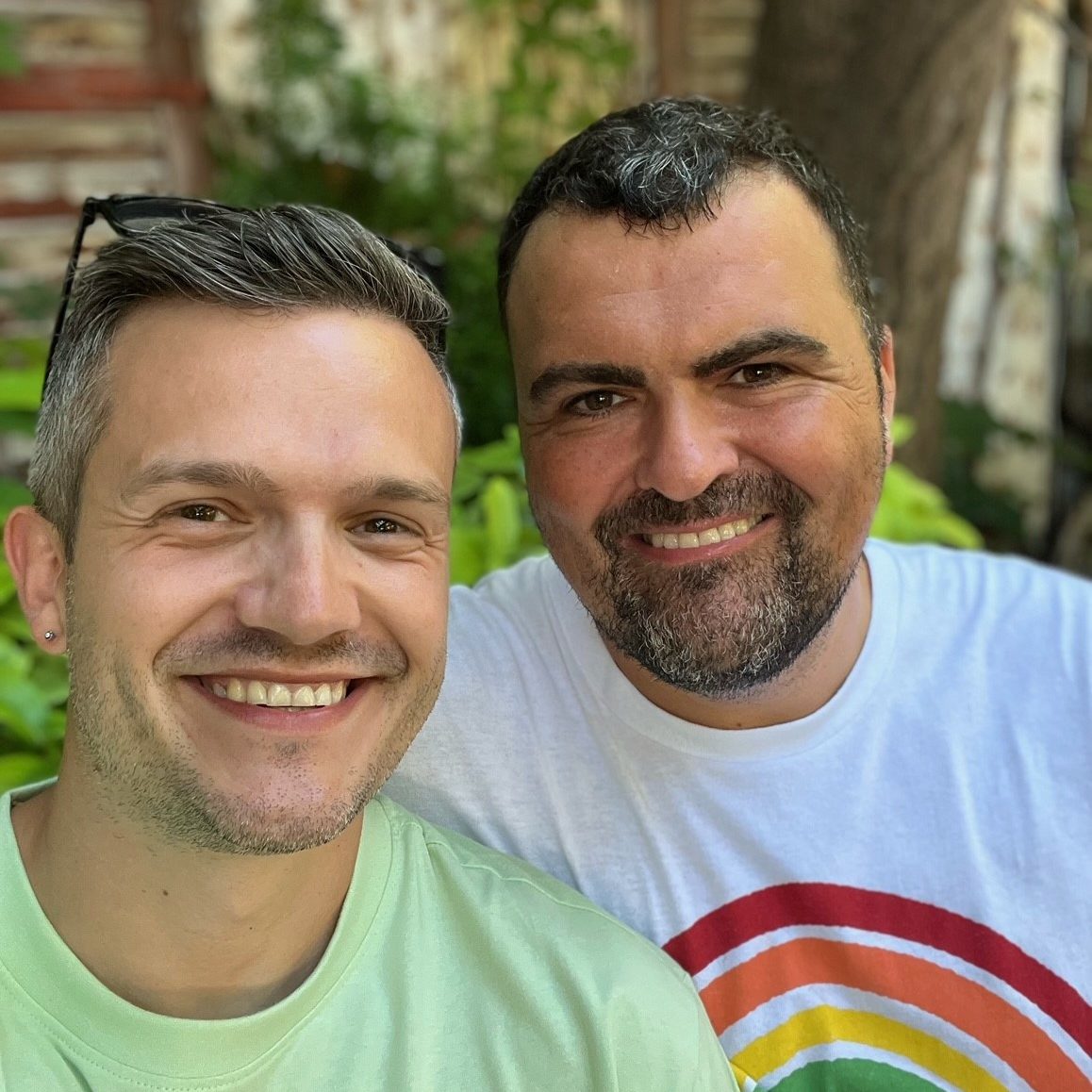LGBTQ+ adoption and fostering is on the rise – and these couples couldn’t recommend it more

Josh and Martin Michaux-Trask, who adopted their son in 2020, and Joanna and Emma Johnstone who have been foster carers since January 2023. (Supplied)
Queer adopters and foster carers have called on other members of the LGBTQ+ community to join them in the “very important” and “rewarding” role of parenting through adoption and fostering.
LGBTQ+ Adoption and Fostering Week, which began on Monday (4 March), led by New Family Social and supported in Wales by the National Adoption Service for Wales and by Foster Wales, is a campaign aimed at highlighting the importance of offering young people a secure home, while challenging misconceptions about the process.
Statistics released by the Welsh government reveal a quarter of adoptions in Wales are now by same-sex couples, compared to just one in 10 in 2012. In the past year alone, the number of LGBTQ+ fostering households has risen by about 23 per cent.
In England, one in five adoptions last year were possible thanks to same-sex couples, according to New Family Social.
Emma, 46, and Joanna Johnstone, 49, from Carmarthenshire in the south west of Wales, are both teachers, and started fostering at the beginning of last year.
Joanna, who has biological children of her own, tells PinkNews that her partner Emma, who didn’t have kids, wanted to “experience being a parent in some capacity”, so together they decided to foster.

“It’s definitely challenging but it’s also very, very rewarding,” Joanna says. “You can see how much difference you can make to a young person’s life. To be able to help families who are having difficulties is really important, whether it be in the short or long term.
“To be able to provide support for these children so they can experience family life can be a life-changing experience for some of [them].”
And it’s important that LGBTQ+ people look into fostering and adoption too, she adds.
Martin, 42, and Josh Michaux-Trask, 39, from the Rhondda Valley, in south Wales, adopted through Western Bay Adoption Service (WBAS) in 2020 after meeting some of the adoption team at Pride Cymru in 2019.
Martin tells PinkNews: “Being a gay man, I never thought that was going to happen, but when I met Josh things started changing.”
Growing up, Josh “always wanted what my parents had”. But growing up during the era of the Conservative Thatcher government’s Section 28, which banned the so-called ‘promotion’ of homosexuality by schools and local authorities, he didn’t think he could have a traditional family life.
Section 28 was repealed in Scotland in June 2000, and taken off the statute books across the rest of the UK in November 2003.

Josh and Martin describe their son, now four years old, as “a little rascal” and add that adopting him has made their own relationship stronger. “As long as you can provide a loving home, I would recommend everyone to go down the adoption or foster route,” Martin says.
Josh admits that being a male same-sex couple can be challenging because of associations of the “female as the mother”. But adopting their son has enabled them to “break boundaries” and their family has been accepted by everyone in their area.
Suzanne Griffiths, the director of the National Adoption Service for Wales, encourages anyone thinking about adopting or fostering to write down any questions they have and get in contact with their regional adoption agency.
“We need people from a wide range of backgrounds and with a variety of life experiences to be foster carers and adopters,” she says. “We know there are many individuals within the LGBTQ+ community who have the vital attributes needed to be a carer: things like empathy, patience and dedication.”
There are many “outdated ideas and misconceptions” around who can foster and adopt, she adds.
“We have lots of foster carers and adopters, who are single, divorced, living in rented accommodation, have pets, or work full time. The diversity of our foster carers and adopters needs to reflect the diversity of the children who need to be cared for outside their families.”
LGBTQ+ adopters have previously spoken to PinkNews to reveal how creating their own families changed their lives in “every way possible”.
How did this story make you feel?

